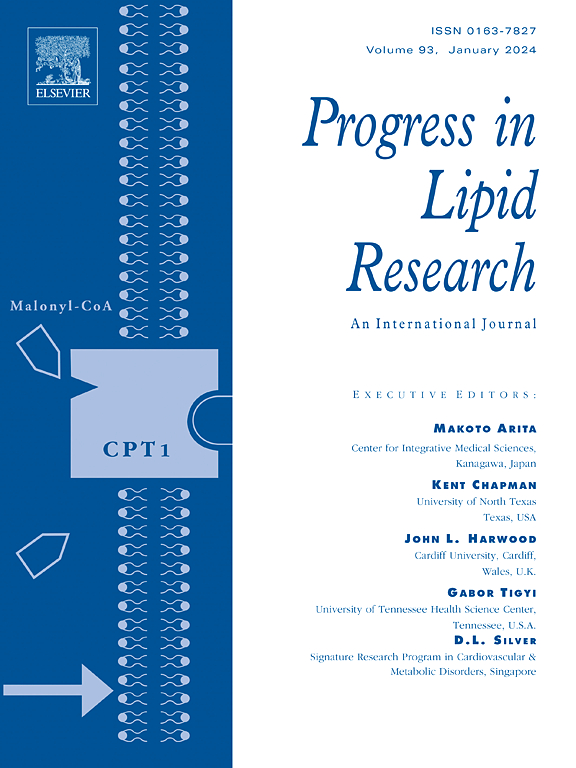Exploring the potential of lipid elicitors to enhance plant immunity
IF 14
1区 医学
Q1 BIOCHEMISTRY & MOLECULAR BIOLOGY
引用次数: 0
Abstract
Lipids besides being components of membranes and storage molecules are also involved in signalling processes and have proven to be vital components in plant defence mechanisms. Over the past decades, the intricate lipid-signalling pathways that underlie the establishment of defence responses have been extensively studied. These molecules can act directly as signalling agents in plant defence or serve as precursors in a plethora of biosynthetic pathways, leading to the production of phytohormones and other signalling agents. Lipids have proven to be promising elicitors by not only trigger a robust and appropriate defence response, across various plant species, but also induce resistance against a wide range of pathogens. Allied to this, lipids are widespread molecules in nature, which makes them an accessible resource and highlights their potential use as a sustainable approach to crop protection. This comprehensive review emphasizes the potential of lipids and lipid-derived molecules as elicitors in developing sustainable agricultural practices. By leveraging the natural defence mechanisms of plants, lipid elicitors offer a viable and eco-friendly alternative to conventional pest management strategies, contributing to the overall goal of sustainable agriculture.
探讨脂质激发子增强植物免疫的潜力
脂质除了是膜和储存分子的组成部分外,还参与信号传递过程,并已被证明是植物防御机制的重要组成部分。在过去的几十年里,作为防御反应基础的复杂的脂质信号通路已被广泛研究。这些分子可以直接作为植物防御中的信号剂,或在大量生物合成途径中作为前体,导致植物激素和其他信号剂的产生。脂质已被证明是一种很有前途的激发子,它不仅能在各种植物物种中引发强大而适当的防御反应,而且还能诱导对多种病原体的抗性。与此相关的是,脂质是自然界中广泛存在的分子,这使它们成为一种可获取的资源,并突出了它们作为可持续作物保护方法的潜在用途。这篇综合综述强调了脂质和脂质衍生分子作为激发子在发展可持续农业实践中的潜力。通过利用植物的自然防御机制,脂质激发剂为传统的有害生物管理策略提供了一种可行且环保的替代方案,有助于实现可持续农业的总体目标。
本文章由计算机程序翻译,如有差异,请以英文原文为准。
求助全文
约1分钟内获得全文
求助全文
来源期刊

Progress in lipid research
生物-生化与分子生物学
CiteScore
24.50
自引率
2.20%
发文量
37
审稿时长
14.6 weeks
期刊介绍:
The significance of lipids as a fundamental category of biological compounds has been widely acknowledged. The utilization of our understanding in the fields of biochemistry, chemistry, and physiology of lipids has continued to grow in biotechnology, the fats and oils industry, and medicine. Moreover, new aspects such as lipid biophysics, particularly related to membranes and lipoproteins, as well as basic research and applications of liposomes, have emerged. To keep up with these advancements, there is a need for a journal that can evaluate recent progress in specific areas and provide a historical perspective on current research. Progress in Lipid Research serves this purpose.
 求助内容:
求助内容: 应助结果提醒方式:
应助结果提醒方式:


